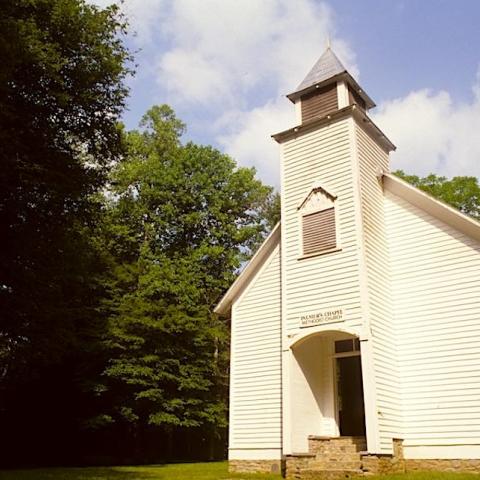
National park gateway communities and their businesses, like Lassen Ale Works in Susanville, California, near Lassen Volcanic National, stand to lose if the Park Service is decimated/Kurt Repanshek file
Trump administration cuts to the National Park Service not only will adversely impact the national parks but do economic damage to the gateway communities that surround them, according to park advocates.
"Why are we doing this, to what benefit? It's hard for me to understand," said Phil Francis, who spent more than 40 years working for the Park Service in positions from park ranger to superintendent of the Blue Ridge Parkway.
The parks generate billions of dollars Francis noted during this week's podcast from the National Parks Traveler, adding that trying to save a few million dollars by firing 1,000 probationary workers and exposing other permanent staff to layoffs doesn't make sense.
Interior Department figures from last summer noted that the National Park System generated $55.6 billion for the national economy in 2023, an increase of $5.2 billion from the year before. The 2023 National Park Visitor Spending Effects survey found that 325.5 million visitors spent $26.4 billion in communities near national parks. That spending supported 415,400 jobs, provided $19.4 billion in labor income, and $55.6 billion in economic output to the U.S. economy, Interior said last August.
"It's a significant benefit to the communities, so why? I don't understand why people are supporting this action," said Francis, who today chairs the Coalition to Protect America's National Parks, a group of retired NPS personnel with more than 50,000 years of combined experience in the National Park System. "It doesn't seem to me to be in their best interest."
Since President Donald Trump took office, the Park Service has been forced to rescind job offers to seasonal workers — a decision that last week was modified to allow the agency to hire an unspecified number of public safety positions and, on Friday, 5,000 other seasonal workers — saw a hold placed on millions of dollars distributed through the Biden administration's Inflation Reduction Act to address climate change, been told to prepare a reduction-in-force (RIF) list of employees, and ordered agencies to "hire no more than one employee for every four" let go.
On Friday the administration also ordered the Park Service to fire 1,000 probationary workers.
The personnel cuts threaten to weaken an agency already understaffed and plagued by low morale.
"The number of employees once was somewhere around 26,000, I think," said Francis, who discussed the recent personnel moves along with Kristen Brengel, senior vice president of government affairs for the National Parks Conservation Association. "And I think the number of FTEs (full-time equivalents) that exist these days is much less than that. I looked at the Blue Ridge Parkway, for example, and the Smokies (Great Smoky Mountains National Park), comparing 2023 and 2010. The Smokies had lost 20 percent of their staff, and the Blue Ridge Parkway lost 25 percent. And that's not including what's happening now and what may happen in the future. The economic benefit of both of those parks is over $2 billion combined. And it's a significant benefit to the communities, so why?"
Brengel said her organization has been pushing the importance of getting proper staffing for the Park Service.
"We've been making a public case for restoring Park Service positions and reminding people that we are a month away from spring break, when many, many parks get very busy with a lot of visitors," she said. "Not having those important positions filled would be very harmful to the park itself, and then also problematic with visitor safety and other experience issues."
The NPCA official said the Trump administration was cutting jobs without realizing the impacts.
"They are not looking at what these folks do. They are just slashing the jobs. And the result of this, from what we have found out already, is that some of the people in their probationary period have jobs like wastewater treatment operators. These are the people who keep parks from smelling like sewers," she said. "Several big parks had these positions in a probationary period and will lose these people today. So when we talk about visitor experience in parks, we're usually talking about whether visitor centers will be open and toilets will be clean. Can you imagine going to a park this summer, a big park, and there's no one to operate their wastewater treatment?"
Francis said cutting permanent positions in the agency is extremely detrimental.
"They do heroic things. They save lives every year," he said. "The maintenance crew, the planning crews, the resource management crew. It's all integrated. You know, if you take away part of something, you have less of the whole. And it's really important that all of those pieces are together in order to make these operations work."
On top of the administration's job cuts, which are expected to be challenged in courts, the Park Service is losing valuable staff to outside agencies that have higher pay scales, said Brengel.
Also up for question is whether the administration is intentionally weakening the Park Service with the intent of turning over operations to private contractors?
"That's always a concern. Privatizing Parks has always been sort of this weird alternative that folks have proposed over the years," said Brengel. "We know what happens when you crack that door open and you say, 'Private industry, come in and see how you would run things.' You'd have hang gliding and parachuting and all the crazy things that people have tried to do in national parks over the years because someone wants to make money."




 Support Essential Coverage of Essential Places
Support Essential Coverage of Essential Places






